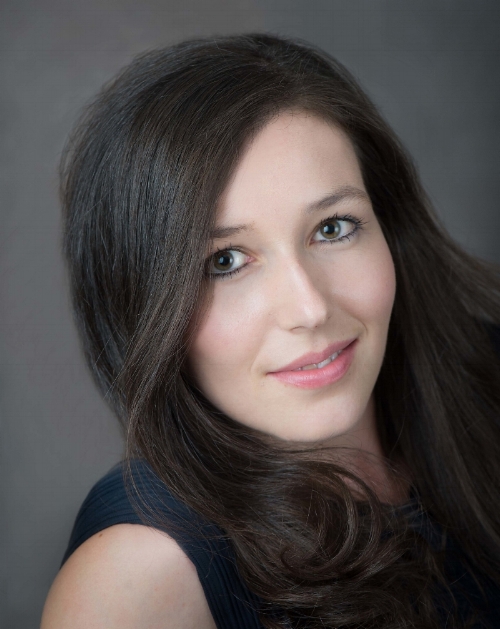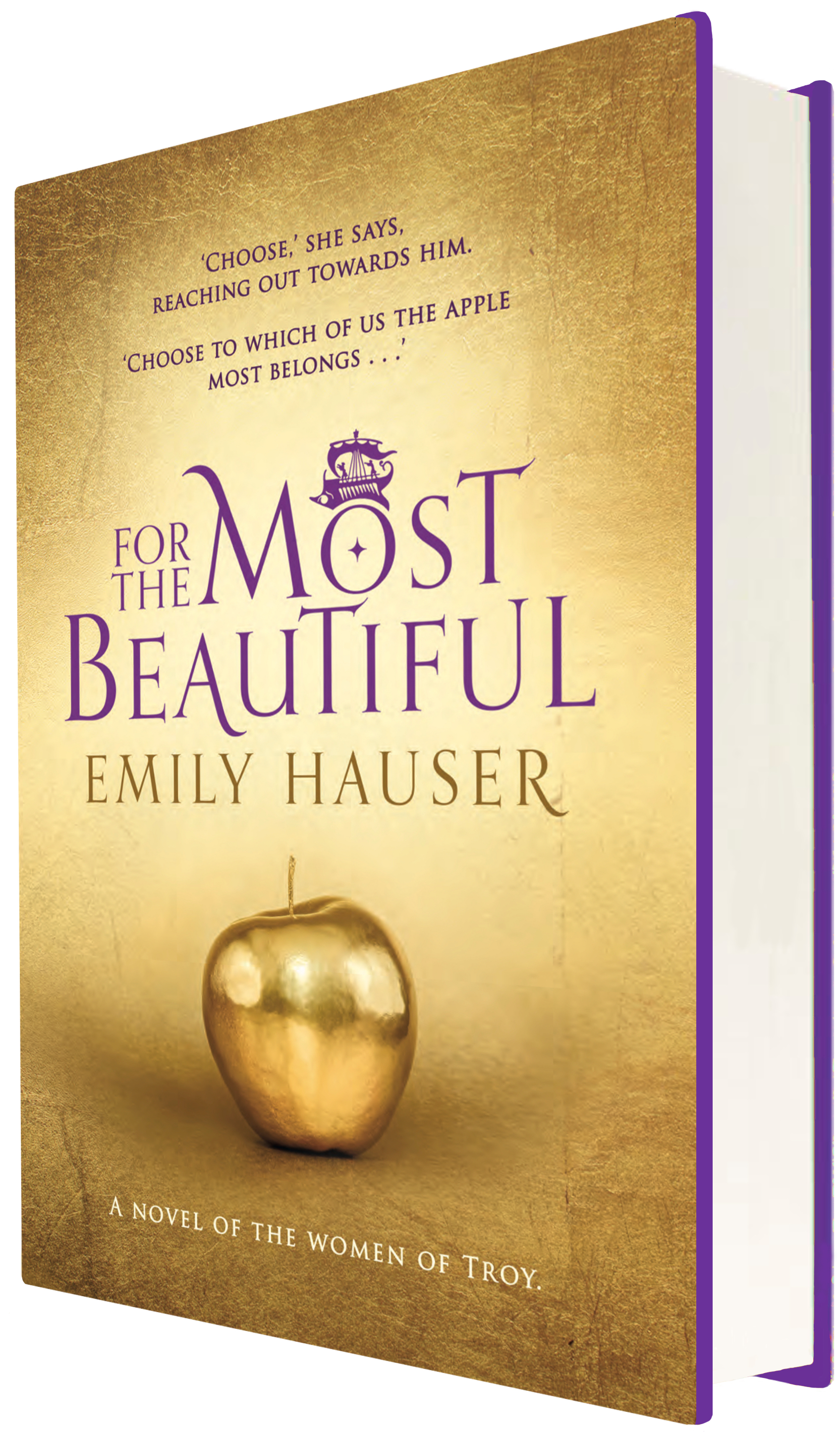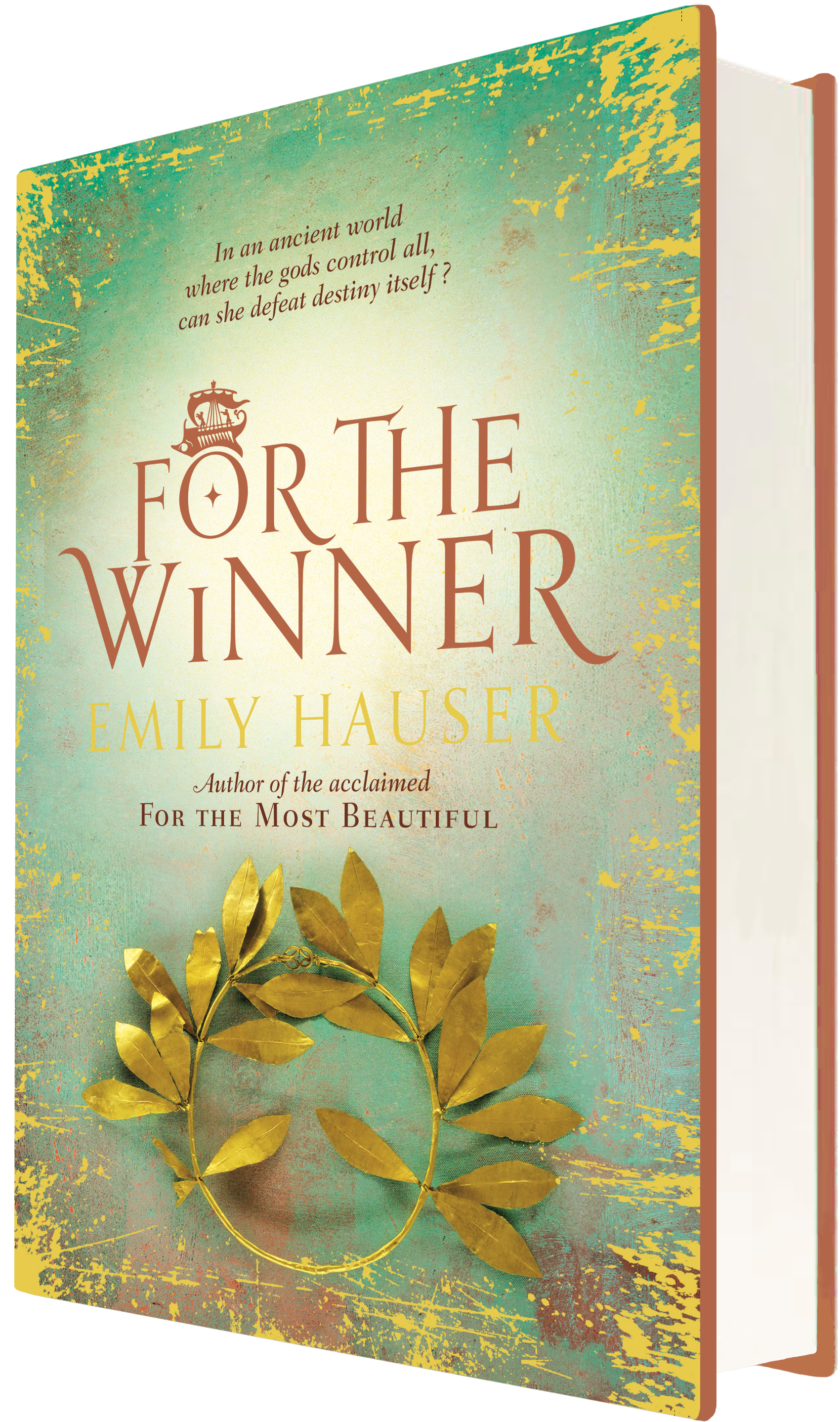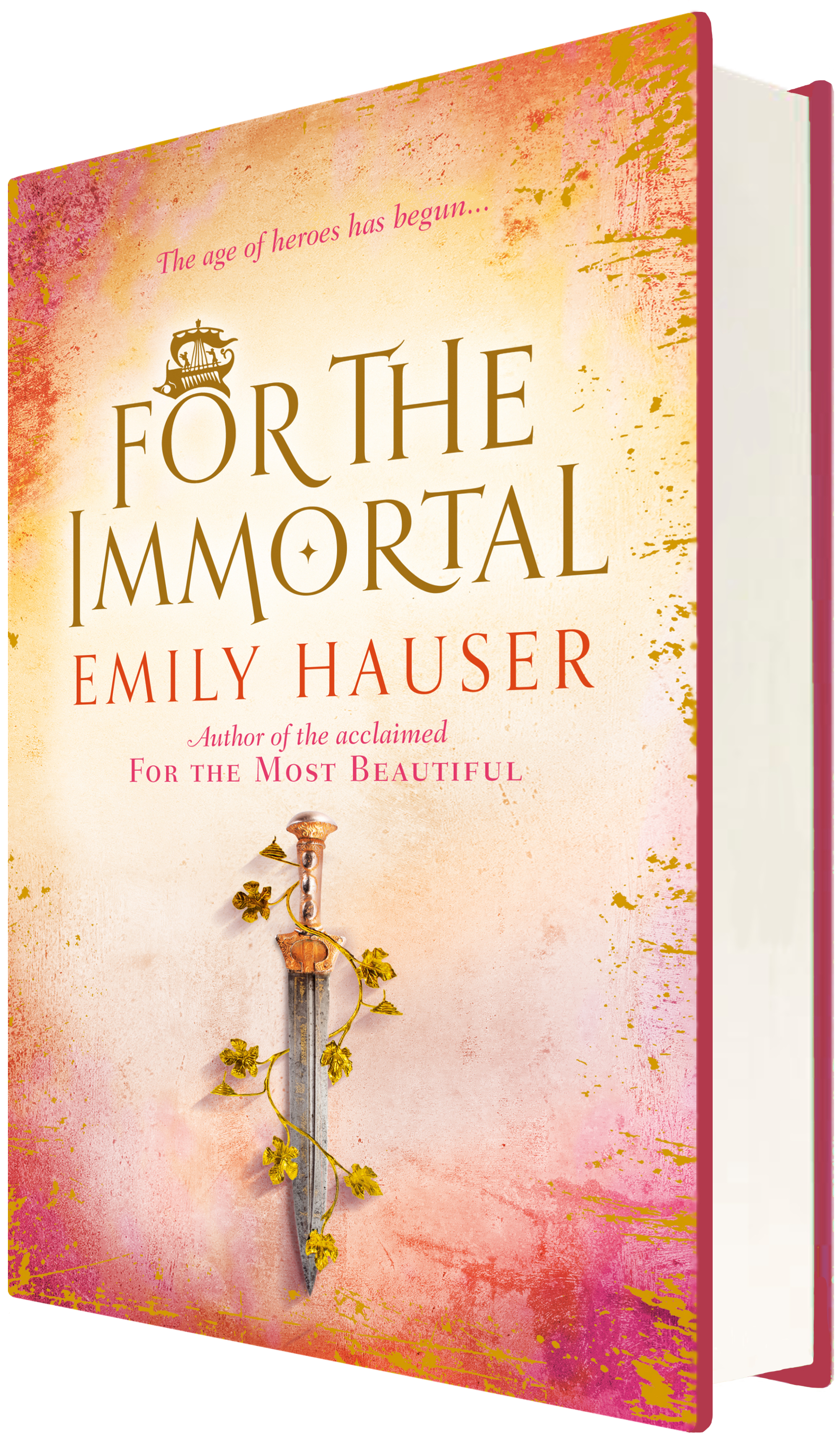
Listen to an interview with Emily on BBC Radio 4 Woman's Hour
Interested in hearing Emily in person? Visit the Events page or Contact her.
Photo by Gretje Ferguson
EMILY HAUSER
Emily Hauser is an award-winning classicist and the author of the acclaimed Golden Apple trilogy retelling the stories of the women of Greek myth: For the Most Beautiful, For the Winner and For the Immortal. Her newest book, Ancient Love Stories, a gorgeously-illustrated collection aimed at a younger audience (and the young at heart), retells some of the greatest real love stories from history that really are truer than fiction.
Featured on BBC Radio 4 Woman's Hour and The Guardian alongside Colm Tóibín and Natalie Haynes, she is a Senior Lecturer in Classics at the University of Exeter and has won multiple awards including the University of Cambridge Chancellor's Medal. She lives in Devon with her husband Oliver.
Emily is an author, classicist and academic with a Ph.D. in Classics from Yale University, and is a Senior Lecturer in Classics at the University of Exeter. She studied at Gonville and Caius College, Cambridge (BA Hons in Classics, 2009; MA Hons 2012), and at Harvard University as a Fulbright Scholar from 2010-2011. Emily received a double first with distinction at Cambridge and has received numerous awards, including the Battie Scholarship, Hallam Prize and Chancellor's Medal for Classical Proficiency at Cambridge, and the Alice Derby Lang Prize at Yale. Her research focuses on women in antiquity, gender studies, Greek and Latin poetry, and the theory and practice of classical reception, particularly in contemporary fiction. Her acclaimed trilogy of novels, published by Transworld (Penguin Random House), retell the stories of the women of Greek myth.
To find out more about Emily's academic background and current research interests, click here.
For more about her new book, Ancient Love Stories, click here.
For details about her novels, The Golden Apple trilogy, click here.
We don’t have to look to works of fiction to find tales of true love. The pages of history are crammed with stories about love that are, quite literally, true. And many of them are among the greatest love stories ever told.
Ancient Love Stories brings together some of the most remarkable romances in history – from tales of fearless queens and besotted emperors to men who died fighting for the men they loved. These accounts of passion, jealousy, hope and longing show that perhaps little has changed over the last three thousand years – love, above all, has endured.
Written by award-winning classicist Emily Hauser and with beautiful artwork by illustrator Sander Berg.
1250 B.C.
The must-read historical novel for anyone caught up in the epic new BBC/Netflix series 'Troy: Fall of a City' . . .
Three thousand years ago a war took place that gave birth to legends - to Achilles, the greatest of the Greeks, and Hector, prince of Troy. It was a war that shook the very foundations of the world. But what if there was more to this epic conflict? What if there was another, hidden tale of the Trojan War?
Now is the time for the women of Troy to tell their story . . .
1260 B.C.
Some 3,000 years ago, in a time before history, the warriors of Greece journeyed to the ends of the earth in the greatest expedition the world had ever seen.
One woman fought alongside them.
Abandoned at birth on the slopes of Mount Pelion, Atalanta wins a place on the voyage of Jason and the Argonauts in search of the legendary Golden Fleece. And it is here, in the company of men who will go down in history as heroes, that Atalanta must battle against the odds – and the will of the gods – to take control of her destiny and change her life forever.
1265 B.C.
Thousands of years ago, in an ancient world where the gods control all and heroes fight to have their names remembered down the ages, two extraordinary women become entangled in one of the greatest heroic tales of all time. . .
. . . and must face how much they are willing to risk for immortality.
As battle lines are drawn between the Greeks and the Amazons, two women soon learn the inevitable truth – in war, sacrifices must be made; especially if they are to protect the ones they love most . . .
How Women Became Poets: A Gender History of Greek Literature (2023, Princeton)
How the idea of the author was born in the battleground of gender…
When Sappho sang her songs, the only word that existed to describe a poet was a male one—aoidos, or “singer-man.” The most famous woman poet of ancient Greece, whose craft was one of words, had no words with which to talk about who she was and what she did. In How Women Became Poets, Emily Hauser rewrites the story of Greek literature as one of gender, arguing that the ways the Greeks talked about their identity as poets constructed, played with, and broke down gender expectations that literature was for men alone. Bringing together recent studies in ancient authorship, gender, and performativity, Hauser offers a new history of classical literature that redefines the canon as a constant struggle to be heard through, and sometimes despite, gender.
Women, as Virginia Woolf recognized, need rooms of their own in order to write. So, too, have women writers through history needed a name to describe what it is they do. Hauser traces the invention of that name in ancient Greece, exploring the archaeology of the gendering of the poet. She follows ancient Greek poets, philosophers, and historians as they developed and debated the vocabulary for authorship on the battleground of gender—building up and reinforcing the word for male poet, then in response creating a language with which to describe women who write. Crucially, Hauser reinserts women into the traditionally all-male canon of Greek literature, arguing for the centrality of their role in shaping ideas around authorship and literary production.







